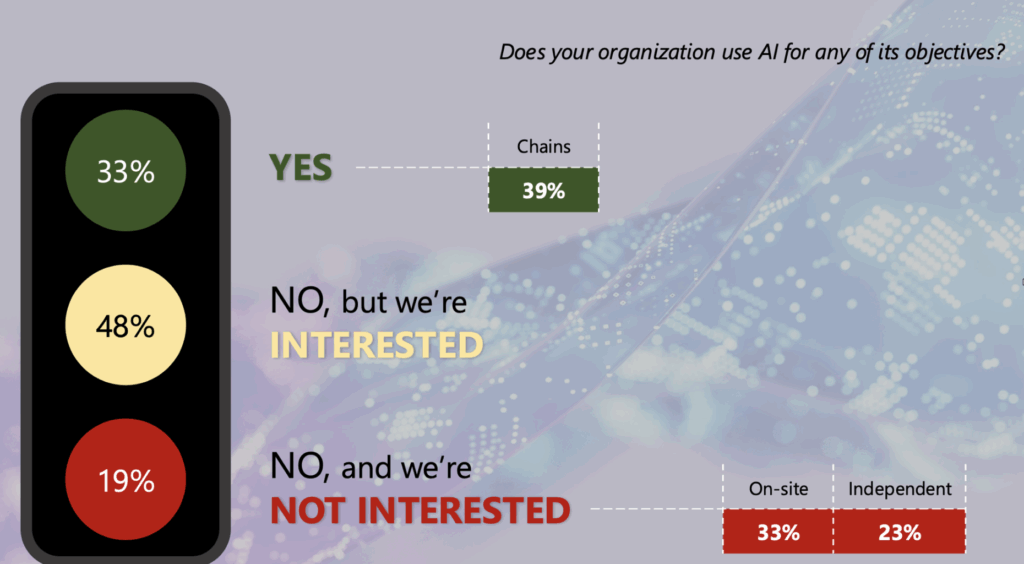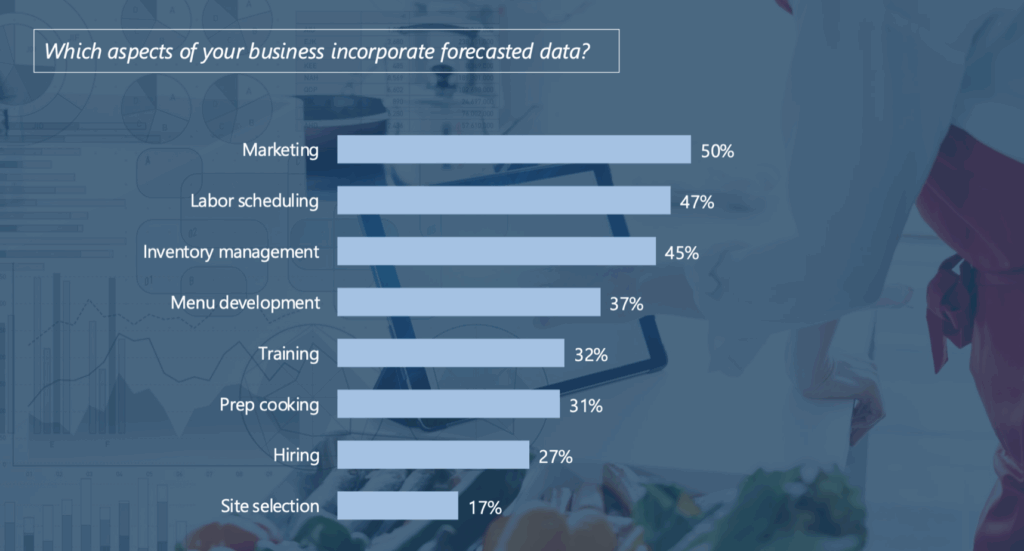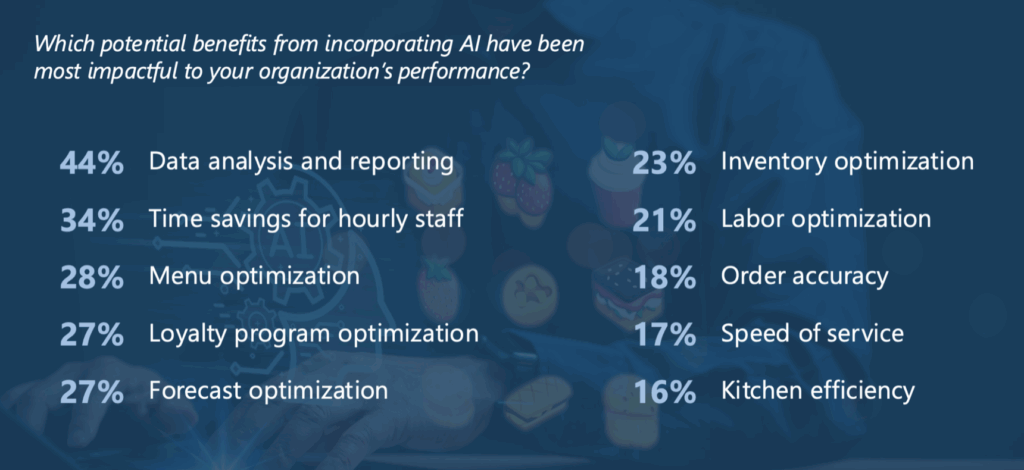
November 3rd, 2025
Artificial intelligence is no longer just a buzzword in the restaurant world, it’s becoming a real competitive advantage. From smarter scheduling to faster inventory checks, operators are starting to see how AI can save hours each week, reduce waste, and even boost profits.
The shift from AI curiosity to AI adoption is happening fast. And while not every restaurant has jumped on board yet, most are eager to learn what’s possible, especially when the payoff is more time, money, and happier guests.
So where should restaurant owners and managers start? Here’s what the latest industry data from Nation’s Restaurant News says about where AI is making the biggest difference and how you can use it strategically.
Most restaurant operators see AI as a tool to save time, cut costs, and improve decision-making, not replace staff.
Inventory management and forecasting are the top areas where AI delivers the highest ROI.
84% of restaurant leaders believe AI will have a positive impact on the foodservice industry.
AI adoption is still early, meaning restaurants that start now can gain a major competitive edge.
The next big growth areas for AI in restaurants are menu pricing, personalization, and operations optimization.
Right now, only about a third of restaurants are actively using AI tools. Chains tend to be early adopters, but independents are catching up fast.
What’s even more interesting is that nearly half of operators describe themselves as AI-curious, they haven’t implemented it yet, but they’re exploring how it could fit into their business.
And the ones who have already started? They’re optimistic. Around 80% plan to increase their AI investment this year, and 64% expect to grow headcount, not reduce it. In other words, restaurant owners aren’t using AI to replace people, they’re using it to make their teams more effective and efficient.
It’s also worth noting that 84% of operators believe AI will have a positive impact on the foodservice industry. The excitement is real, but the focus is practical: operators want tools that deliver real results.

For most restaurants, the return on AI isn’t just about boosting sales, it’s about working smarter.
More than half of operators say AI’s biggest value is in saving time and reducing costs. The most common wins come from:
When asked where AI delivers the highest ROI, the top answers were inventory management and data reporting. These are areas that directly cut costs and improve accuracy.
Still, not everything’s perfect. About half of operators say the cost of AI tools is still a barrier, meaning there’s room for vendors to offer more transparent, results-driven pricing models.
If there’s one area of AI that’s getting everyone’s attention, it’s forecasting.
About 75% of restaurant leaders believe better, data-driven forecasting could increase profits, either significantly or somewhat.
Why? Because forecasting affects nearly everything you do:
When your forecasts are more accurate, your margins get healthier, plain and simple.

Many restaurants have already found practical ways to work AI into their daily operations — no futuristic robots required.
Here’s what’s most common right now:
Looking ahead, the next big opportunities are in menu pricing, personalized guest experiences, and IT operations, areas where AI can drive both efficiency and revenue growth.

If you’re running a restaurant, here’s how to think about AI strategically:
AI in restaurants isn’t about replacing people, it’s about giving your team superpowers. Whether it’s forecasting demand, managing inventory, or personalizing guest experiences, the goal is the same: to make smarter decisions, save time, and grow your business sustainably.
As AI tools become more affordable and user-friendly, the restaurants that adopt them early will have a clear edge not just in efficiency, but in profitability and guest satisfaction.
Start small with tools that handle repetitive tasks like inventory tracking, social media content generation, or staff scheduling. These are quick wins that show immediate value without major setup.
No. Most operators use AI to support and empower employees, not replace them. It helps teams work more efficiently, improve accuracy, and spend more time on what matters most, the guest experience.